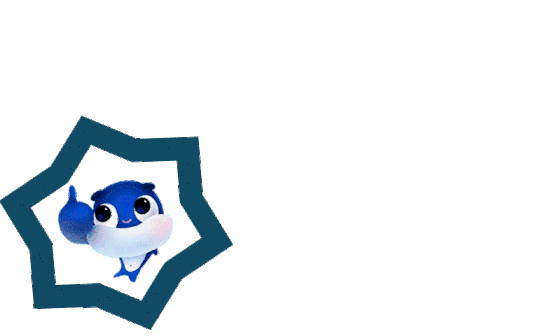I have a big bug for today, and this is the Anoplocnemis phasiana. Anoplocnemis phasiana is a species of sap-sucking insect in the family Coreidae. They are native to Asia where they are considered a major pest of many types of agricultural plants such as trees and shrubs, including legumes, sometimes known as the tip-withering bug.
The size of this bug is very big compared to the other species, so it is easy to spot in case it decided to give a visit to your garden. Unfortunately despite of its big size and nice color pattern on its back, it is also considered a pest for the garden, as it will suck the sap from your plant. So make sure you get rid of it when you see it wandering around your garden, otherwise you won't have a good harvest.
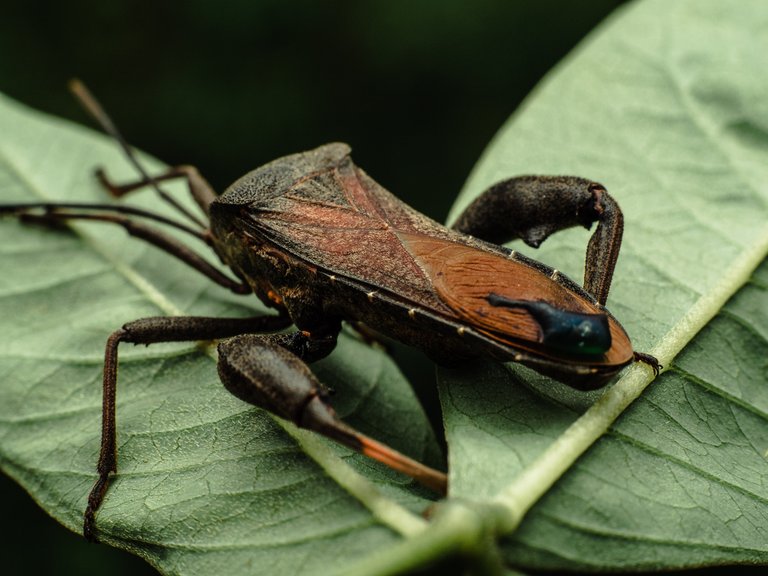

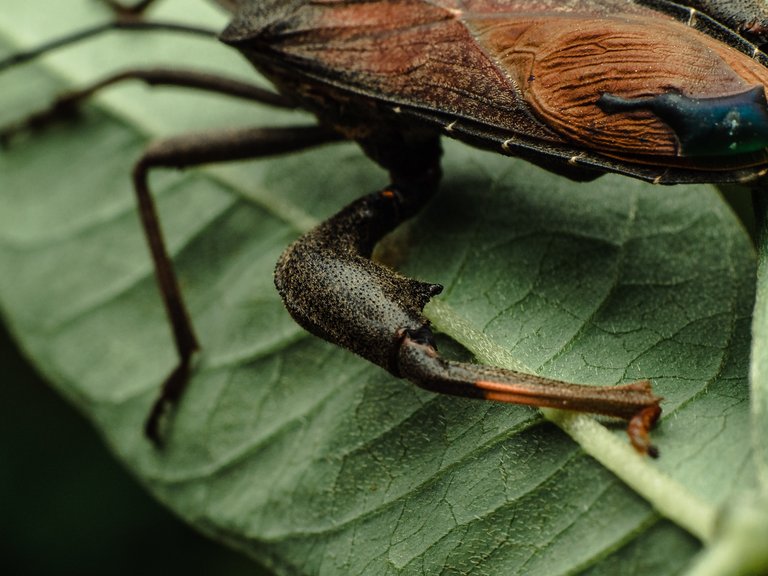
What I like about this bug is its hind legs, It a lot bigger than the other legs. Not sure what caused it, or why to this creature have these huge hind legs. If it is being used to jump away from one plant to the other like a grasshopper, the shape of the leg is different, and the point doesn't seem to be flexible so that it could act as a spring for it to jump high and long.

The other thing that I notice that the black mark on the end part of its wings. I hardly see it on the other family or genus, even from the same species but different individuals, maybe it is a special marks, or maybe it is just a flaws that it has for this particular animal.
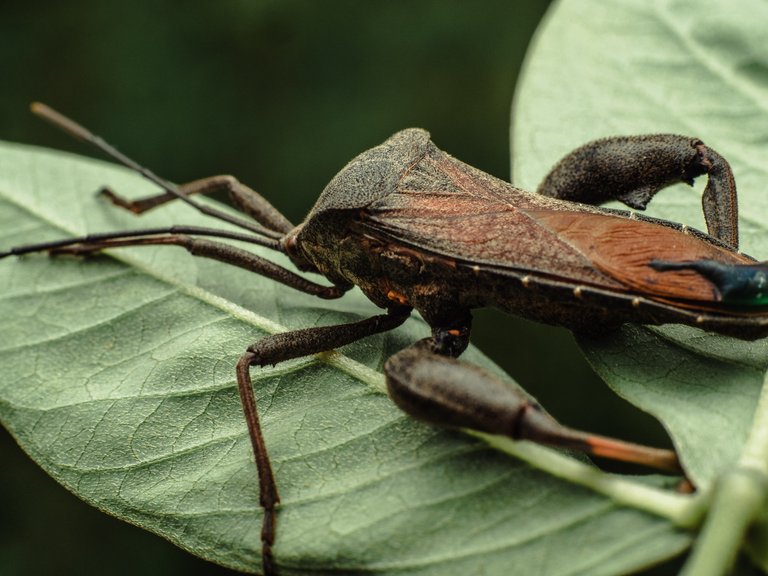

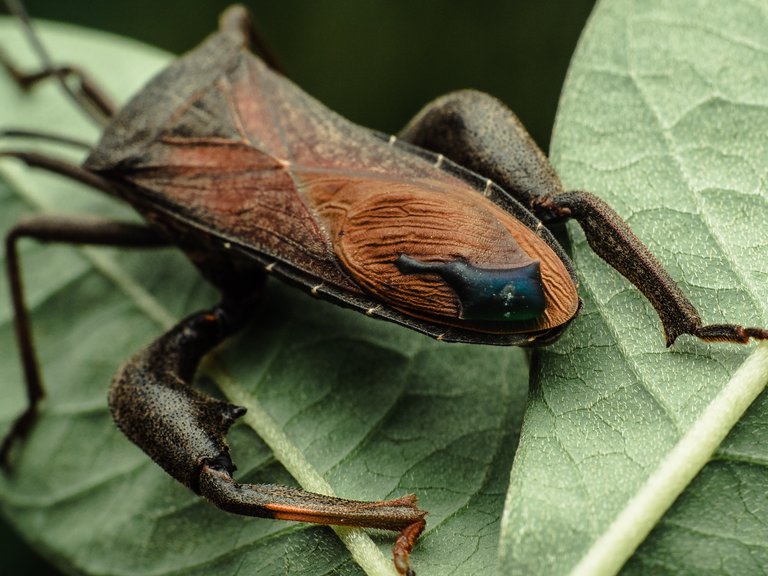

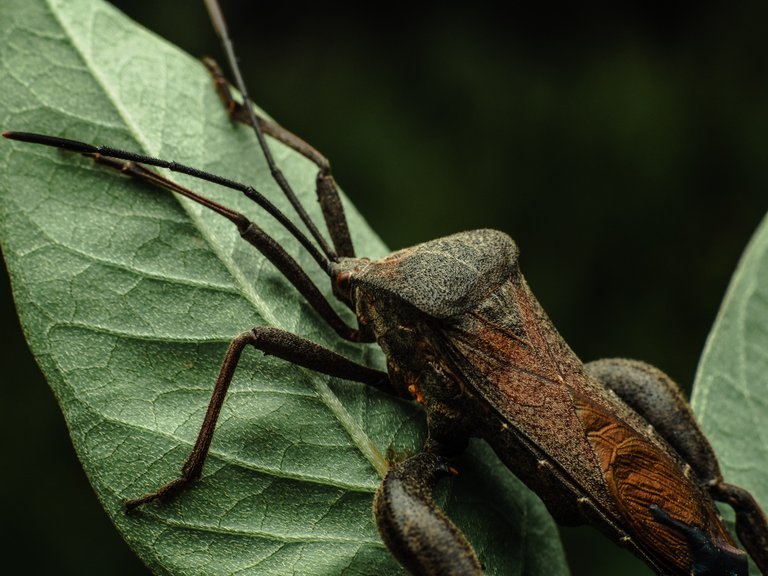

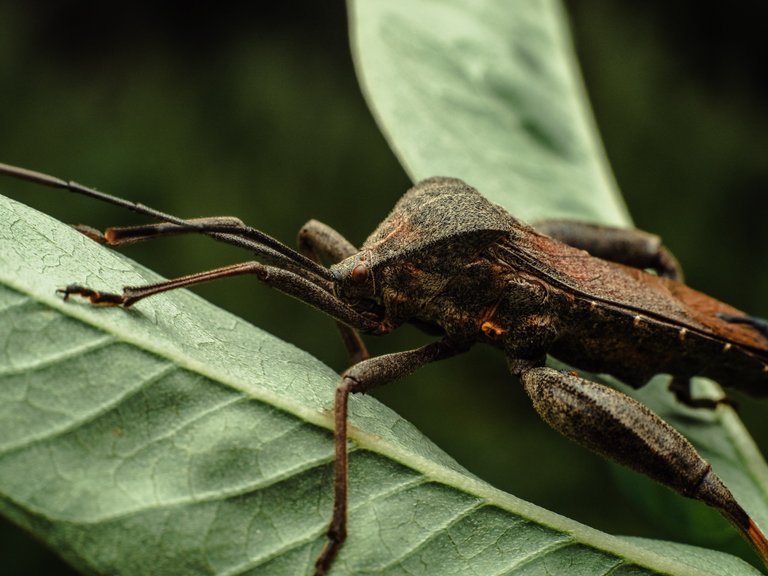



But despite all of that, this creature is still very lovely to see as part of the diversity that nature has.
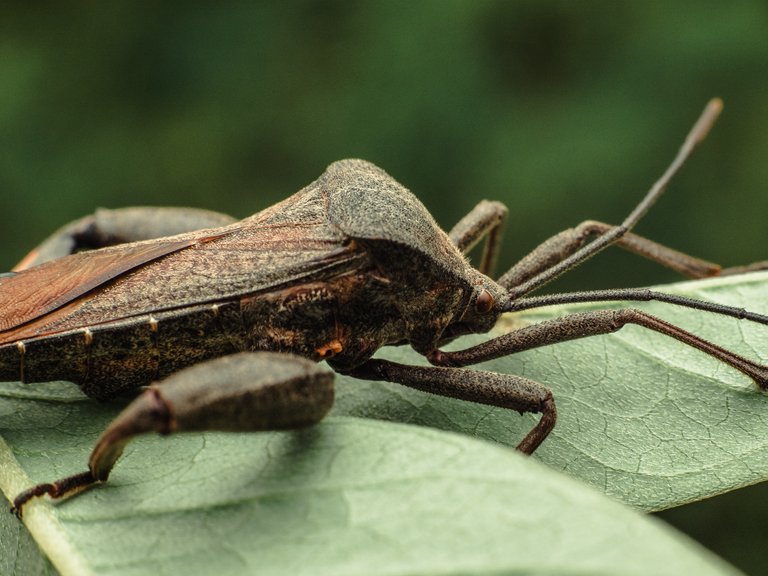

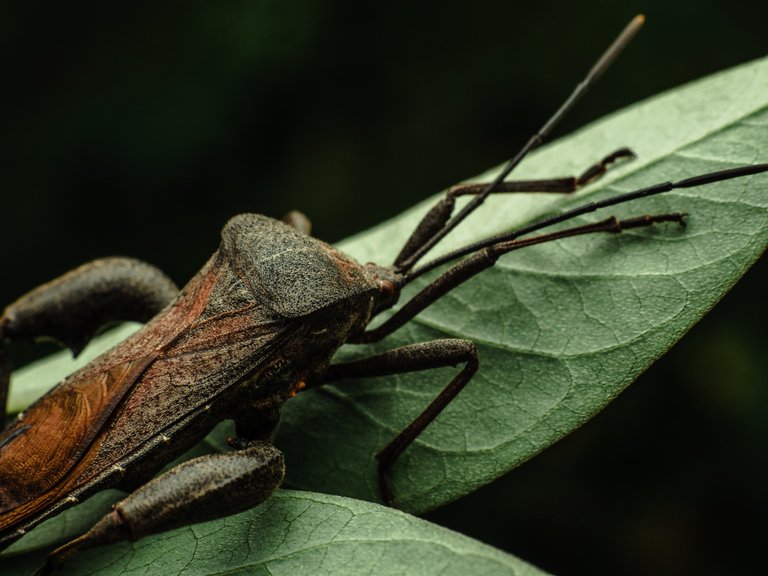
| Photo Style | Macro Photography | Accesory | 50 mm Canon lens + adapter + Extension Tube | |
| Location | Bali, Indonesia | Lighting | External Flash | |
| Gear | Olympus Omd Em5 mark ii | Diffuser | Cekrek Diffuser |
 | I am a Balinese man, a father of a toddler son, working in the hospitality industry, who has recently found a passion for macro photography. I want to share the photos that I've taken here on Hive. I appreciate any comments or feedback you leave on my posts and kindly invite you to be part of my journey in this vast Hive Ocean. Thank you very much |



